Staying Relevant by Staying Curious
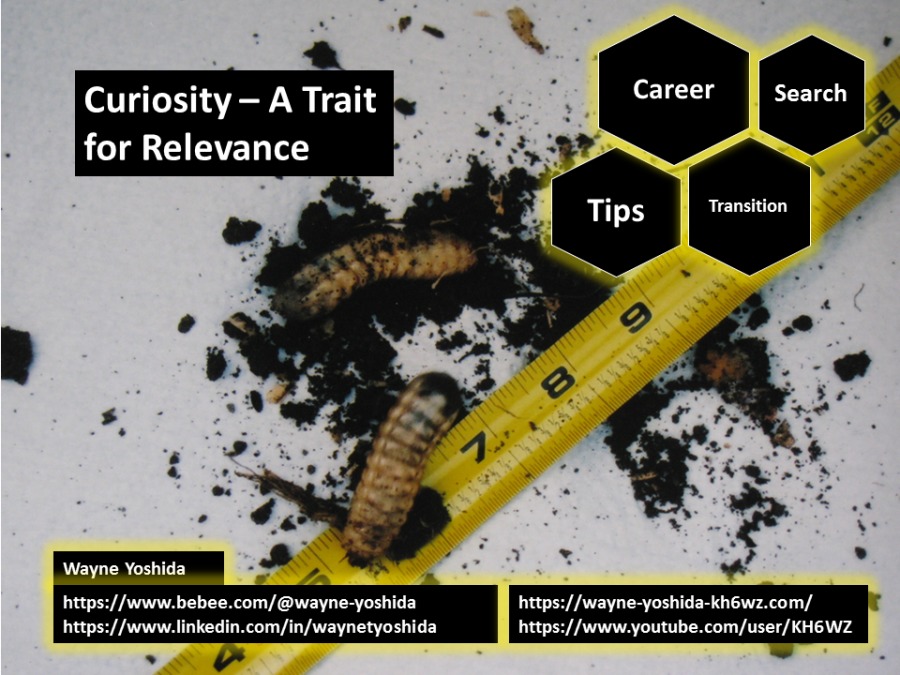
Insecta: Diptera: Stratiomyidae (soldier fly) larva
Recently, Susan Rooks - the Grammar Goddess -- mentioned something about the fear of not remaining relevant. So, I decided this post would have something of value to folks.
All of us should continuously be aware of new developments, trends, competitors and technologies in our fields of expertise. This “career maintenance” is a way to prevent skills obsolescence. Some people may call this a way to demonstrate a passion for what they do, taking the time to keep their skills and knowledge well-honed. I call this trait curiosity, and one should enjoy this “extra work” not because it is mandatory or forced, but because it is enjoyable. In other words, one should enjoy the work they do, since work enjoyment benefits the employee as well as the employer.
One of the most memorable public television promotions was “Stay Curious,” a series of spots directed by filmmaker Errol Morris. In one spot, a young girl wakes up before dawn, grabs a flashlight and goes to a chicken coop. She sneaks up to the window and shines the light inside. The rooster wakes up, thinking it’s a new day, and crows. In another spot, another young girl wonders about raising fish. She goes into the kitchen, grabs a jar of caviar, and dumps it into a fish bowl.
Here’s a wildly non-job skill, non-work related example of my curiosity. Earlier this summer, I wanted to know whether or not a bunch of really big, fat, ugly worms in my compost pile were hazardous to garden plants or the compost. I could have smashed them, or I could have just ignored them. But I decided to find out whether or not the grubs were helpful or harmful to my compost. So I typed “big ugly worms in compost” into Google, and found several links to describe what these things are. In case you are curious, the worms are soldier fly (Insecta: Diptera: Stratiomyidae) larva, and are aggressive composters, a good thing.
We should apply this idea of curiosity and fresh excitement to everything we do, including keeping up with the latest trends and technologies in our professional field. In addition, if you can find a way to apply multiple ways of learning to your everyday activities, you will increase your expertise even further.
As you learn something new, patience is the key to success. Since this is learning for pleasure, there is no hurry to get up to speed -- the idea is to get to whatever level you want. This is an important point. There are some folks who are satisfied with having as much knowledge as they have right now, and have no need or desire to expand their knowledge. And that’s okay. But consider what can happen to your career if you don’t adapt to new things, and get left behind…
Learning by Teaching Others
Did you know that when you teach others something, it reinforces your knowledge of the topic? When I was a tutor for non-native English speaking (ESL) students, I had to twist my way of thinking to understand what they were talking about. Their questions made me think about various topics in a completely different way, and I had to use my knowledge of the subjects-at-hand to answer their questions. When you have the power of knowledge, you can teach others something new. And their questions will make you think about the topic or topics in new and different angles, reinforcing your knowledge even more. Sometimes a question can confuse you, which is okay. This just means that you have to search for another expert to supply knowledge, and the teacher (you) becomes a student.
Reading and Research
This method isn’t as exciting as some other ways to learn more about an industry or a new technology, but is certainly valid. In fact, with Internet access, there is almost no limit to the information you can find. However, like a lot of things in life, there is nothing like old fashioned, hands-on experience and learning by doing.
Making Mistakes, and Learning from Them
Making mistakes is one aspect of learning. I always say, “I know what not to do in this case. . . ,” since I make mistakes all the time. But the only way to turn mistakes into useful knowledge is to learn the proper way of doing the task. In other words, if we goof, we have to find out why we goofed, fix the goof, and remember the correct way of doing something to prevent the same goof in the future.
The Concept of Continuous Improvement
Continuous improvement is the search for excellence and perfection. And since nothing is perfect, we should always be on a quest to improve our skills and knowledge.
Here are some helpful books on networking and job-seeking skills, there are plenty of others. Do some research and find some more good ones.
Ferrazzi, Keith, “Never Eat Alone,” a great story about the networking process
Lathrop, Richard, “Who’s Hiring Who,” an old book from the 1980s, but has some useful information and words of encouragement
Yate, Martin, “Knock ‘Em Dead,” a whole series of books, advice and services for each part of the job seeking process.
About Wayne Yoshida
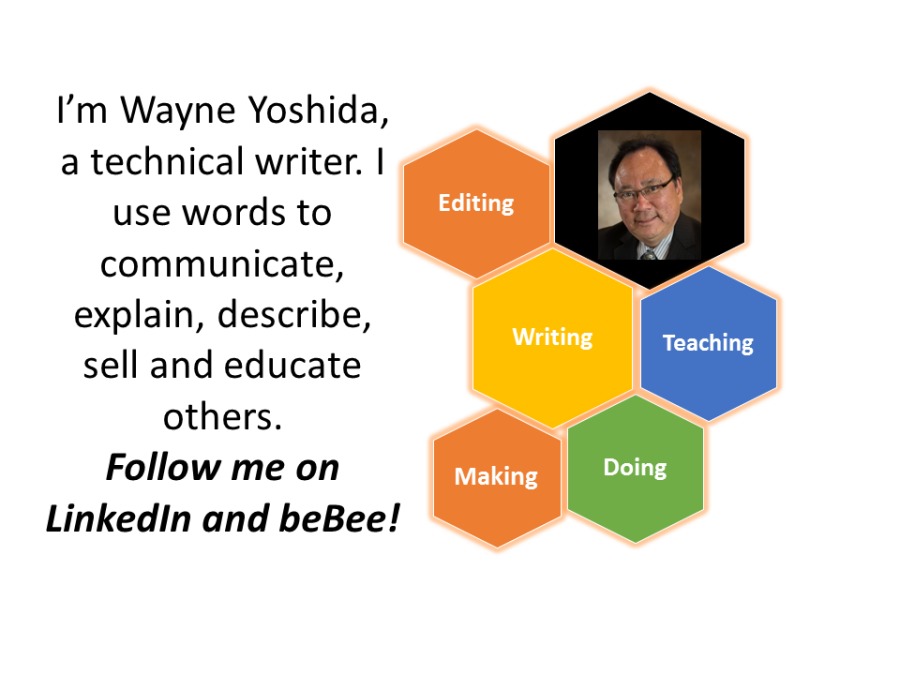
""
Articles from Wayne Yoshida
View blog
I was looking for something different to make on my Big Green Egg this past weekend since we had a b ...
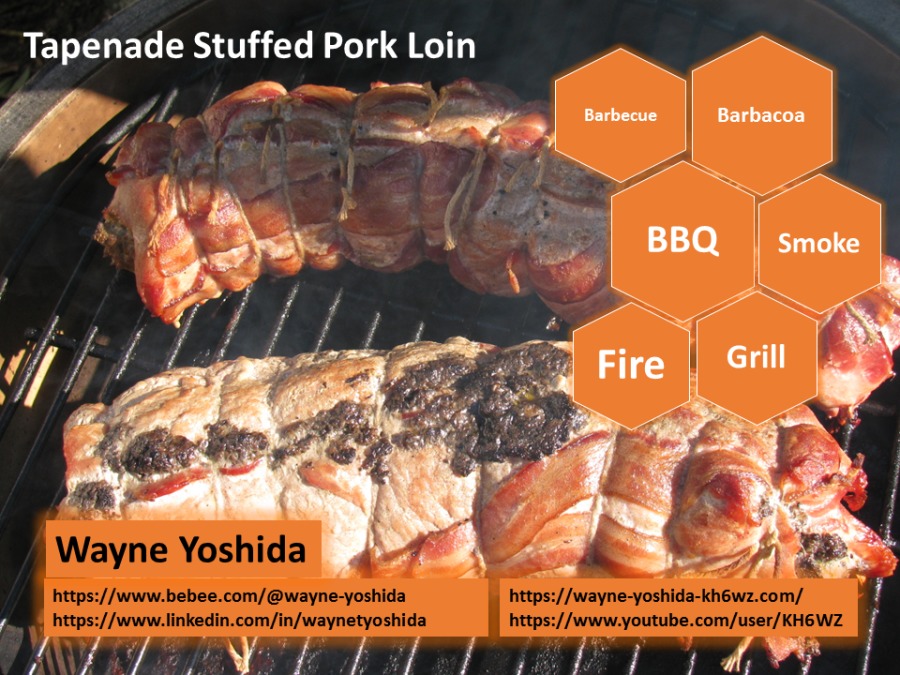
I decided to move away from making a ham for Christmas and made these two tapenade stuffed pork loin ...
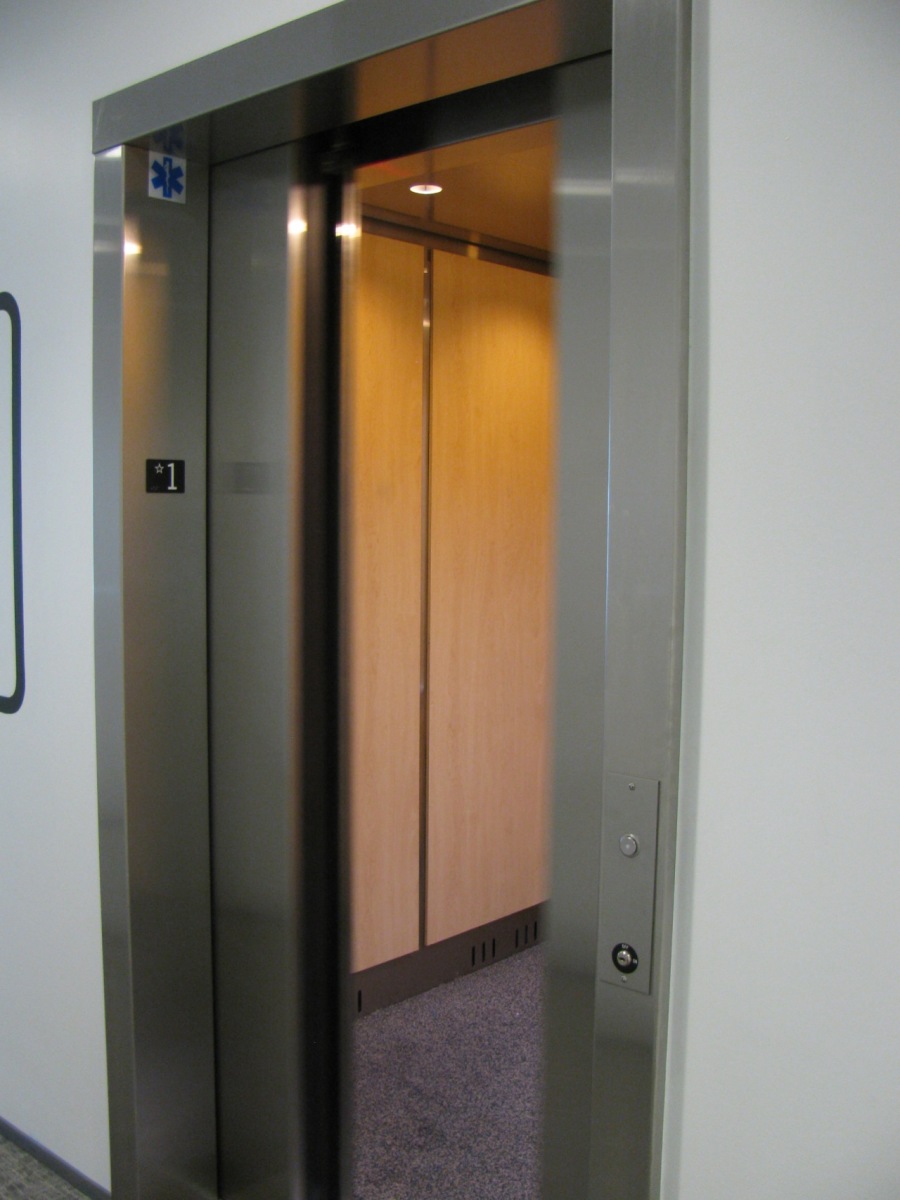
I got stuck in an elevator yesterday. · Although I don’t have claustrophobia, this is one of my recu ...
Related professionals
You may be interested in these jobs
-
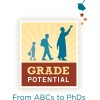
Jupiter Tutors Needed
1 week ago
Grade Potential Tutoring San Luis Obispo, CA, United StatesJupiter families are in immediate need of part-time tutors for all subjects and grade levels. A passion for helping students achieve their goals · We handle all billing and client acquisition, so all you need to think about is how best to help your students. · Flexible schedule: ...
-

Residential Journeyman Electrician
6 days ago
Metro Electric Romeo, United StatesResidential Journeyman ElectricianAre you looking for fantastic income growth? A job with a team that truly values you and your skill? Great job stability? If so, look no further, Metro Electric is the company for youWho We AreEstablished in 1997 Metro Electric Engineering Techno ...
-
Medical Assistant-Registered
4 days ago
CVCH East Wenatchee, United StatesJOB SUMMARY · The Medical Assistant Registered (MA-R) primary function is to support the healthcare team to provide patient care. The scope of the MA-R is based on training, competency, and endorsement by a designated healthcare practitioner, per Washington state regulations. Th ...


Comments
Wayne Yoshida
7 years ago #4
LOL Paul \ says, "Never stop learning"
Wayne Yoshida
7 years ago #3
#3 Thank you Susan Rooks for sparking this idea. But be careful - this applies to everyone, not "older folks" - just saying. . .
Wayne Yoshida
7 years ago #2
Thanks - this is especially important in high technology fields, where things change constantly. Just like dinosaurs, we do not want to fail at adapting to changes and learning new things.
David B. Grinberg
7 years ago #1